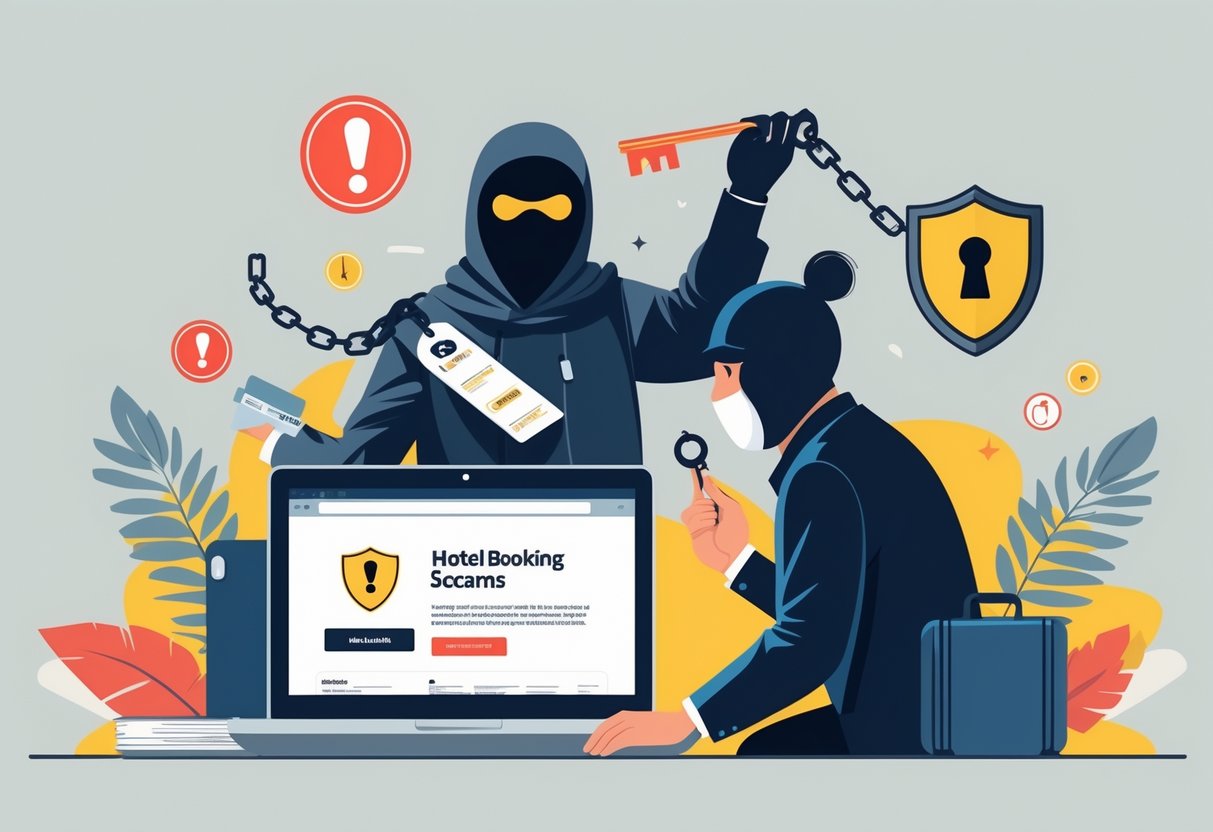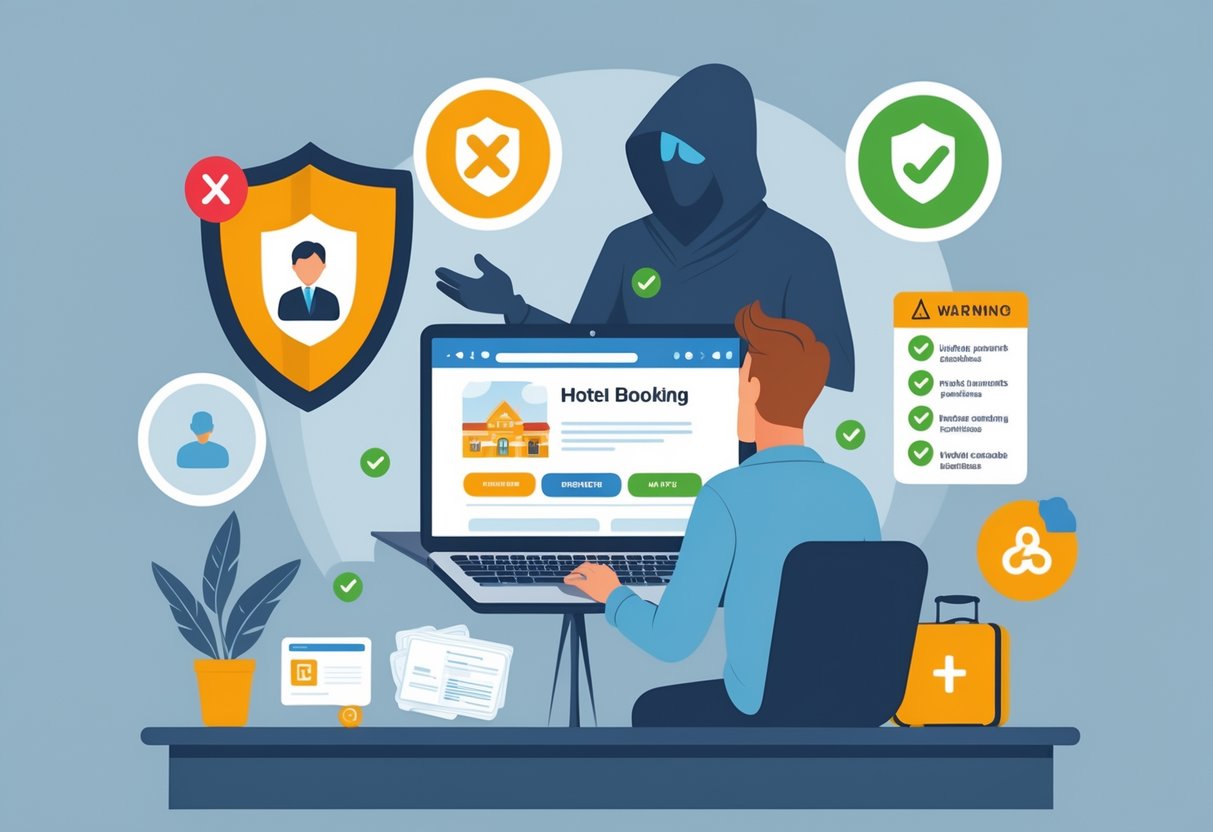
The Importance of Travel Insurance
Travel insurance plays a critical role in safeguarding travelers from unexpected financial losses. When booking hotels, insurance provides vital fraud protection and helps ensure a smoother recovery process if issues arise.
Protecting Against Unexpected Losses
Travelers often face risks such as cancellations, lost reservations, or fraudulent charges. If a hotel booking scam occurs, many travel insurance plans can reimburse prepaid costs and mitigate further financial damage.
This can be especially important if the payment was made upfront or with a debit card, which offers less protection than credit cards. Travel insurance may also cover trip interruptions caused by illness, emergencies, or natural disasters.
In cases where travelers arrive at their destination only to find that the hotel does not exist or refuses service due to a scam, coverage for additional lodging and transportation expenses can be invaluable. For more detailed guidance on what travel insurance typically covers, visit the travel insurance guide from CNBC.
Having the right policy reduces stress and minimizes loss, making it easier for travelers to continue enjoying their trips or reschedule plans without suffering large out-of-pocket expenses. Not all policies are the same, so reading the terms regarding fraud protection is essential before purchase.
Choosing the Right Policy
When selecting a travel insurance policy, travelers should focus on key factors such as coverage for hotel fraud, trip cancellation, and lost deposits. It is important to compare policies and choose one that includes robust fraud protection and explicit coverage for accommodation-related issues.
Using a checklist can simplify this process:
- Verify limits for cancellation or interruption coverage.
- Ensure the policy specifically addresses third-party fraud or booking scams.
- Read exclusions related to pre-existing conditions or certain countries.
Some credit cards also offer travel insurance as a perk, though coverage levels can vary. Travelers can consult side-by-side comparisons and read consumer reviews before making a final decision.
For more tips on evaluating policies, see these recommendations on travel insurance and travel scams.
Frequently Asked Questions

Scams targeting hotel bookings can involve spoofed websites, fraudulent agencies, and fake online listings. Travelers often face risks not only before booking but also while navigating airports and unexpected payment requests.
What are the warning signs of a hotel booking scam?
Warning signs include offers that look too good to be true, such as unusually low rates or last-minute deals with high-pressure tactics. Scammers often use poorly designed or copycat websites and request payment by wire transfer, gift cards, or untraceable methods.
Another red flag is the lack of clear contact information or legitimate customer service.
How can I verify the legitimacy of a hotel booking site?
To confirm a booking site’s legitimacy, review the site’s URL for spelling errors or suspicious domains. Look for secure payment protocols and verify whether the business has a physical address and verifiable contact details.
It helps to book directly from the hotel’s official website or use reputable platforms with positive reviews and clear refund policies. For more details, see this guide to identifying fraudulent websites.
What steps should I take to avoid online travel scams?
Travelers should research any agency or platform they plan to use, read recent customer reviews, and avoid deals that require immediate payment under pressure. For added security, consider booking through well-known travel agencies or brands.
Using a credit card provides more protection against unauthorized transactions. The FTC shares insights on avoiding travel scams before making arrangements.
How can I differentiate between a real and fake travel agency?
A genuine travel agency will be transparent about fees, provide written contracts, and list affiliations with recognized travel industry associations. Fake agencies may avoid answering detailed questions, pressure customers to pay quickly, or refuse to provide documentation.
Travelers should check registration with official bodies and verify business licenses when in doubt. Additional tips are discussed in this article on recognizing and avoiding travel fraud.
What are common tactics used in travel scams at airports?
Scammers at airports frequently target travelers with fake taxi offers, unofficial shuttle services, or fraudulent lost luggage support claiming urgent fees. Some approach travelers with fake surveys or offer unsolicited help with reservations and transportation, then demand payment before providing any service.
Being cautious with personal information and confirming arrangements with official airport services helps minimize risk.
What measures can travelers take to secure their investment from scams?
Travelers should use credit cards for bookings and enroll in travel insurance. Retaining all confirmation emails and receipts is important.
Using trusted sources and reading the cancellation policy can help reduce vulnerability in case of disputes. Keeping backup documentation is also recommended.
It’s advised to protect reward points and monitor accounts for unauthorized activity, as explained in this overview of travel scam protection strategies.



